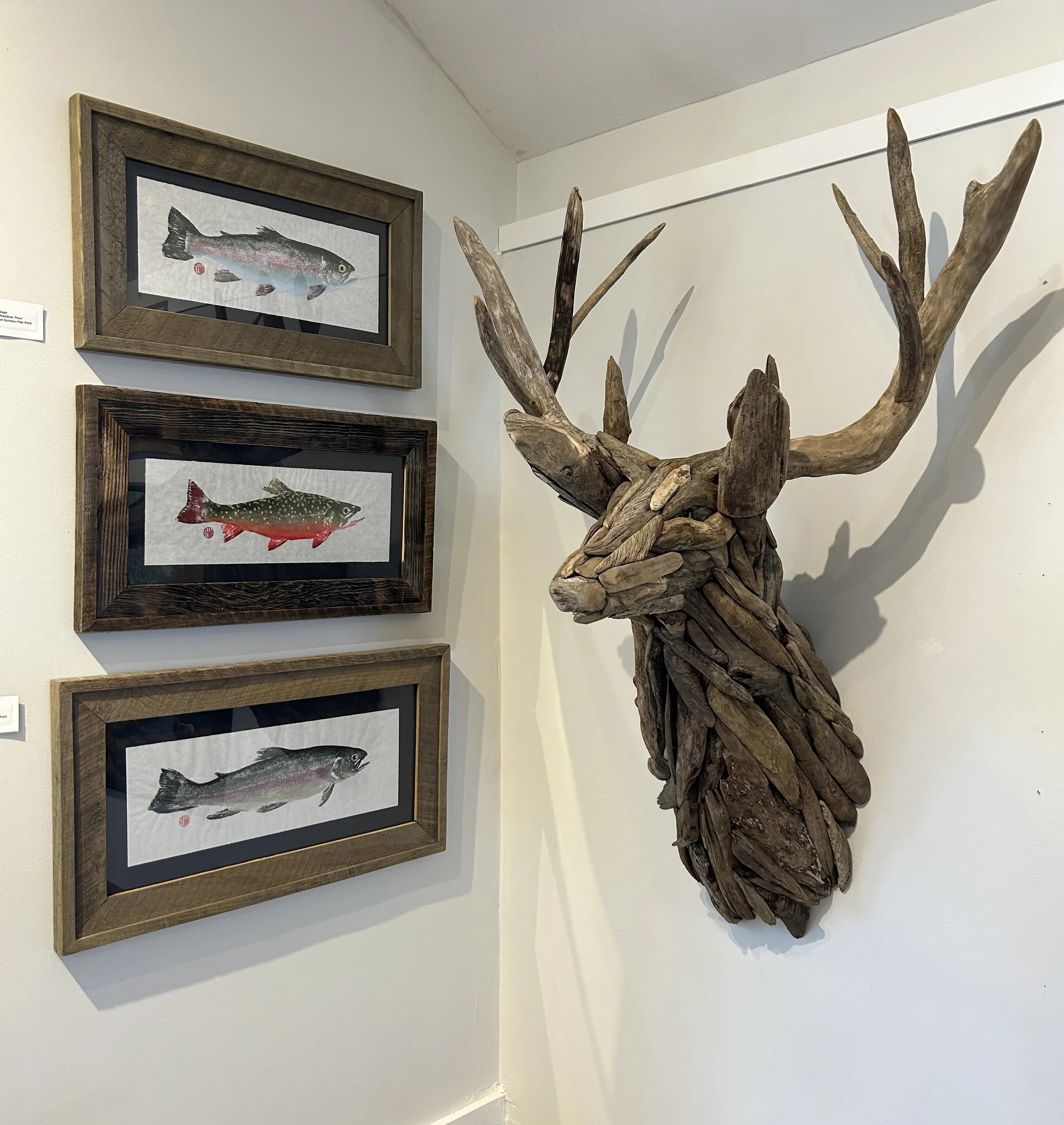
These monochronatic oil paintings were painted from the archives of the city of Boston. My interest in nostalgic imagery is a symptom of the technological acceleration of today. Each era had its own set of problems but to me it still represents a time of simplicity and connection.
The intention of my Rewilding series of oil paintings is to set a stage wherein the viewer may contemplate these critical relationships in an uncertain and changing landscape.
Our increasingly technological and industrialized society has disconnected humans from nature and from one another. Corporations are set in a space of urban decay that is not entirely dystopian. Nature and its wild and domesticated animals are beginning to emerge in the landscape. This powerful universal intelligence of nature thrives effortlessly and with perfect balance.
The pieces of pottery that cover this cow skull were collected in local Vermont rivers over the past 4 years. Most pieces can be dated to the early 1800’s - mid 1900’s. These antique cups, bowls and plates, that were once the centerpiece of countless meals and conversations, broke and tumbled downstream through towns and farmland and are now part of a one of a kind historic work of art.
I built a camera that combines two forms of photography that are separated by more than a half century. The iPhone insert is positioned at the correct focal length from the view finder image produced by the 1950’s German primary Flex II lens. The result is a nostalgic gritty image with a halo effect and interesting depth of field.
Expanding on the time collapse camera filters are placed over the viewfinder of the old camera, adding another layer to the photographs. The filters are created in advance then captured in combination with the immediate surroundings. This folding of time and technologies produces intriguing layered images and is an interesting space of creation that is analog and in the moment.
I captured over 100 photos of Volkswagen Bugs in the streets of Puebla, Mexico. This cultural auto icon found an unlikely colorful home here in Mexico, far from its dark origins in Germany. It truly is the" people's car", it is cheap, fuel efficient, and easy to repair. It is called "vocho" and can be scene all over Puebla in various conditions and in different neighborhoods.
GYOTAKU FISH PRINTS
(ghee-oh-tah-koo) GYO means fish, TAKU means impression/rubbing
-ancient Japanese way to preserve the true record and size of species of fish caught
-printed from the actual fish using printing ink and then rubbed onto rice paper
-finished product shows refined expression of form with amazing detail and texture
The parking meter with its own relationship to time bears as a silent witness to the slow change of seasons. An unlikely pairing of two worlds offers insight to our sense of time and place.